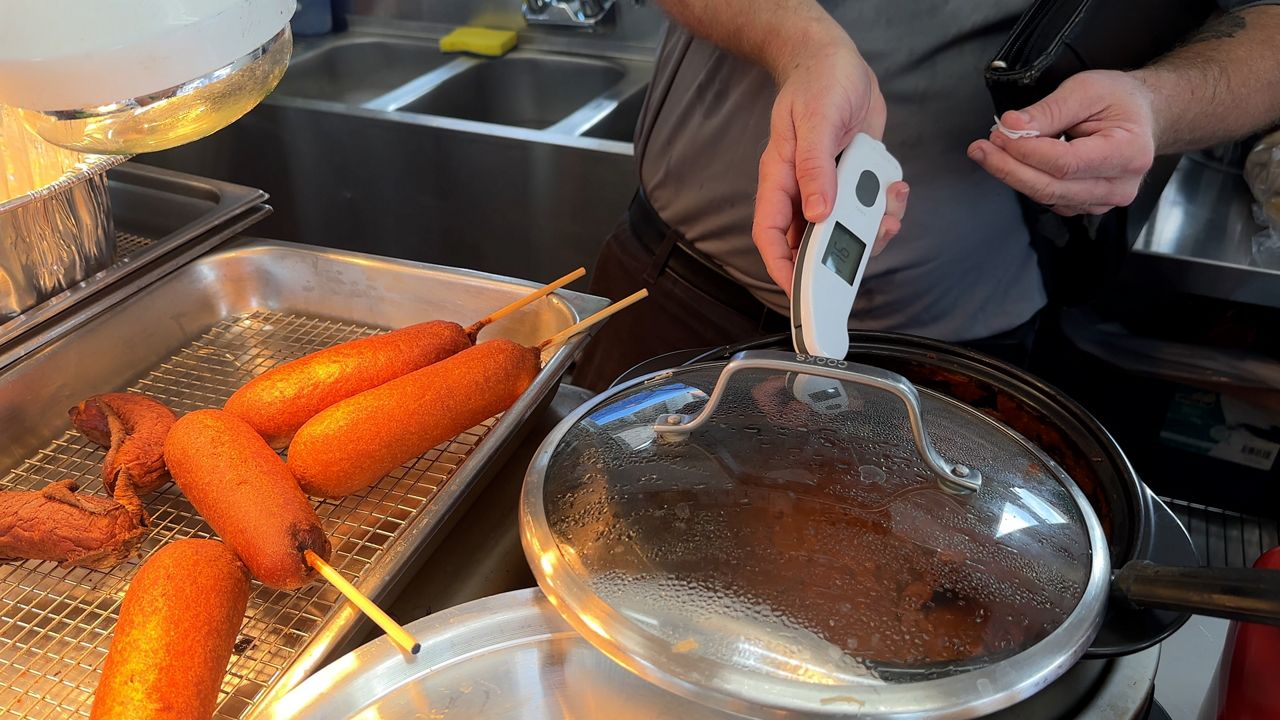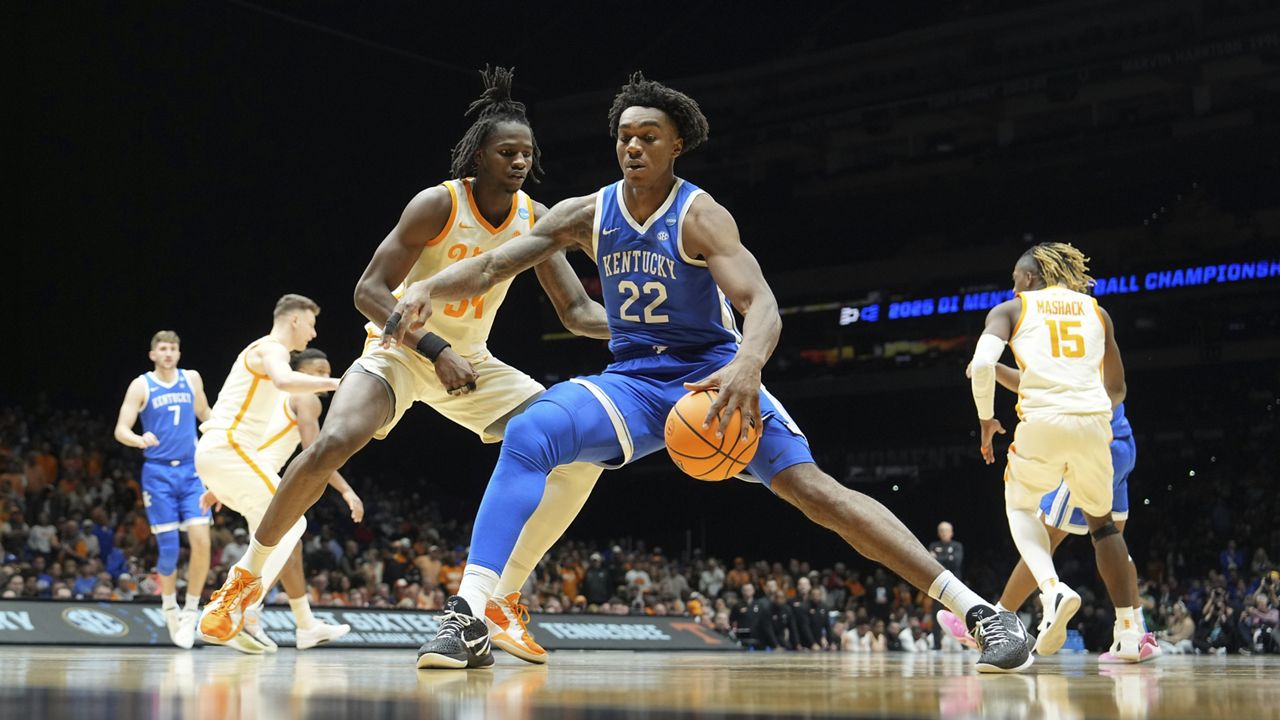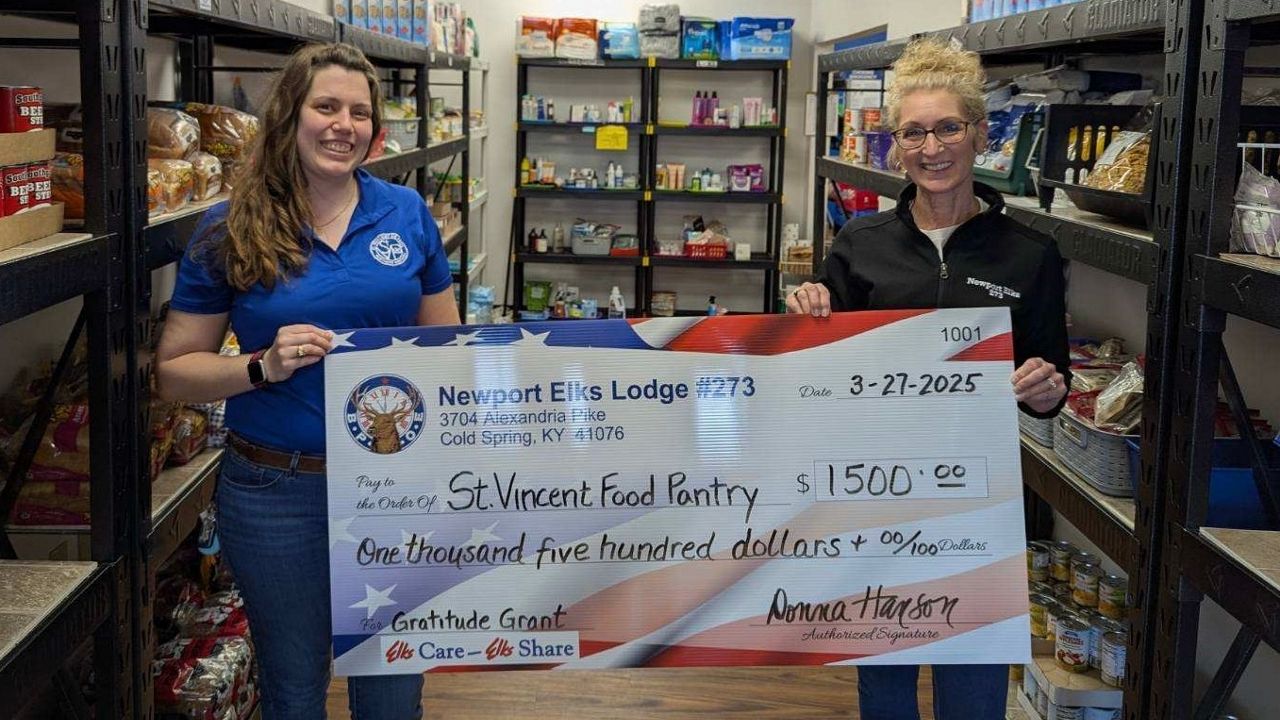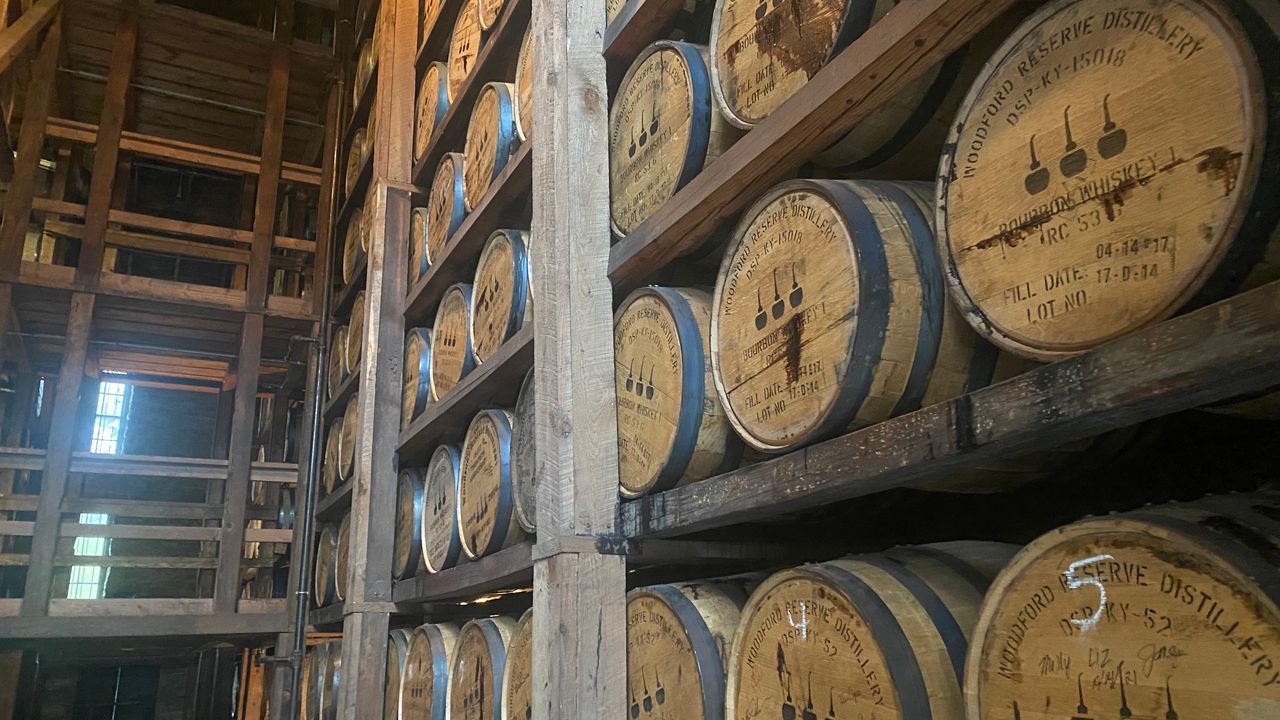LOUISVILLE, Ky. — As Jennifer Hornback and her family were in line for fair food, a thought emerged about the novelty they often enjoy at the Kentucky State Fair: how safe is it to eat?
The Larue County resident is confident that the food she is eating at the fair is safe.
“I feel like each vendor has good safety precautions and they keep all their food refrigerated and served fresh and hot, so I don’t have any concerns about the issues with the foods,” Horback said. “We are fair food junkies, so we’ll try out several of the vendors here today.”
That’s how Scott Nethery, an environmental health specialist, would like all customers to feel at the fair. His job is to inspect vendors to make sure they are following protocol—and he’s been doing it for about 25 years.
“Our goal is to not shut people down, our goal is to serve safe food,” he said. “And however we get to that, which is easiest on everyone, is the way that’ll we’ll go.”
A thorough hand wash is one of the first steps on Nethery’s list.
This year there are around 300 food vendors, which means the Department of Public Health and Wellness will do between 1,500 and 2,000 inspections during the 10-day fair.
Nethery says when he inspects businesses, he is looking to make sure the kitchen complies with the health code. Priority violations must be handled immediately.
“We really are diligent, taking temperatures and making sure that things are cold enough and things are hot enough,” he explained. “You know, we don’t want them in what we call the danger zone.”
Cold food items should not reach above 41 degrees Fahrenheit, while hot foods can vary depending on if they are cooking or waiting to be prepared or served.
The inspection team also makes sure the vendors are using clean methods when handling food. Nethery also suggests those who touch animals at the fair to wash their hands before eating to help prevent illnesses.
“We look for hygienic practices, so we want to make sure that people are washing their hands, and that they have disposable towels, to turn off any equipment that needs to be turned off,” Nethery said.
After eating corn dogs, Hornback and her family hopped in line for french fries—hopefully confident that their fair food was in good hands.









